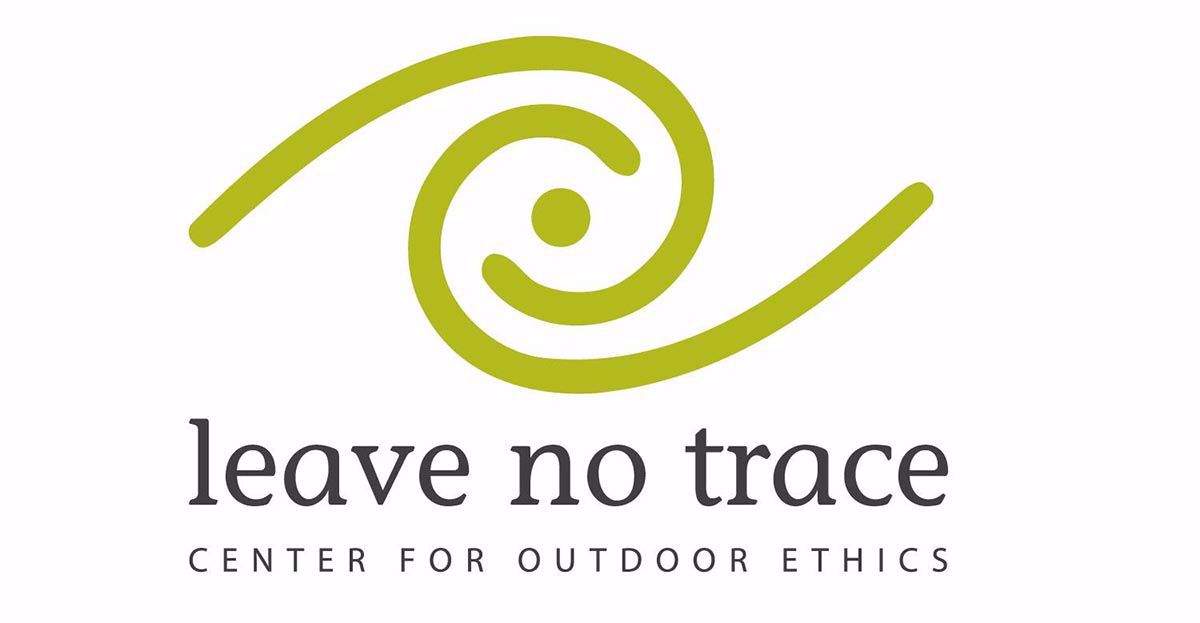You’ve heard of Leave No Trace (LNT). You take only pictures and leave only footprints. But you probably still have questions about how to follow LNT guidelines in less obvious ways. You're not alone!
Here are the seven LNT-related questions that we most commonly get asked and our responses to them.
- What do I do with my toilet paper?
We get it- sometimes nature calls and the only resource you have is a small shovel and a tree. Responsible outdoorswomen have three options:
- Pack it out. That means that if you choose to use real toilet paper you should put it in a plastic bag when you’re done and dispose of it once you’re back in civilization.
- Use natural toilet paper. Believe it or not, natural toilet paper is as sanitary as regular toilet paper when done correctly. Popular options are flat stones, smooth leaves, and snow (a snow wipe is one of life's great experiences!) and they negate the need to bury or pack anything out.
- Bury it. This option is a barely an option at all because it’s hard to do correctly. It’s acceptable to bury your non-scented toilet paper alongside your waste when you’ve dug a proper cathole (6-8 inches deep), but only in areas where it can easily break down and decompose. That means that areas like deserts, glaciers, or frozen tundra are off limits. But if we’re being honest, almost NOBODY digs a deep enough hole and what we often see is animals who have dug down two inches and brought your TP to light.
- Banana and orange peels are biodegradable, can I leave them behind?
Biodegradable, yes. Native, no. Most of the tasty natural snacks we bring into the woods aren’t native to many natural environments and therefore aren’t suitable food for local wildlife. An apple core isn’t going to dramatically disrupt a local ecosystem but it is, ultimately, harmful to wildlife because animals would otherwise forage and eat a nutritious diet derived from their natural environment. Feeding wildlife damages health, alters their natural behaviors, and exposes them to a dependence on humans.
Ask yourself this question: Would this [insert biodegradable item] be here if I weren’t?
- What do I do when I find trash on the trail?
First off, you make a mental note of how it has disrupted your wooded bliss and re-vow that you won’t be a trail litterer. Secondly, if it’s safe and sanitary to do so, pick it up and pack it out. Every little bit helps so do what you can. If you come across waste that is too large for you to remove make a mental note of its location and report it to the park staff or landowner.
- Will it really make a difference if I take just one pinecone (or rock, leaf, flower, etc) home as a souvenir?
It likely won’t make a dramatic difference in the ecology of the region if you take one natural souvenir, but if every person who walks a particular trail takes something home then that could lead to a massive disruption in the local ecosystem. The plants and animals that make up that ecosystem each have a particular role to play and our mere presence is disrupting their natural pattern and lifecycle. Adding to or taking away from a natural environment, no matter how small, exacerbates that impact. At the end of the day it’s the principle of the matter.
- What do you do if the snow pack is too deep to dig a cathole for human waste?
We try to avoid these situations on our trips (let’s not be uncomfortable just for the sake of discomfort!) but we still get the question.
Burying your poop in seasonal snow is, sadly, not sufficient… so you’ll have to pack it out. This is because the snow prevents biodegradation and once the snow finally does melt it will be like you had never buried your poop at all. If the ground is frozen or the snow is too deep to bury your solid waste in a hole that is at least six inches deep, packing it out is the right choice.
- When is it okay to gather firewood for my campfire?
We love campfires, especially when there are s’mores involved. But as beloved as they are, campfires DO leave a trace. To minimize the impact, LNT says that you should only collect wood that has already fallen and only if there is a substantial amount of fallen wood in the area. This ensures that the micronutrients that are released into the soil as wood decomposes (and that small insects and animals feed upon) remain plentiful, avoiding large-scale disruption of the ecosystem.
- I’ve been told it’s okay to poop on the beach below the tide line. Is that gross?
Wow, so many questions about poop! But it’s better to know. Gross is a subjective question, so we’ll just address the ethics of it. It is in accordance with LNT teachings to dispose of human waste in the ocean but only when there is significant wave action and/or currents. That means not in eddies, streams, or standing water where people might camp, cook, or clean. Think of the beach as getting two flushes a day!
The upside to this is that you’re not contaminating land and it’s easy to wash your hands afterwards! The downside is that privacy is hard to come by and you’re likely to get wet if you’re doing this correctly.
Those might be the most popular questions about LNT, but what other questions do you have? No question is too ridiculous, and together we’re able to better mitigate our impact on the environment.


